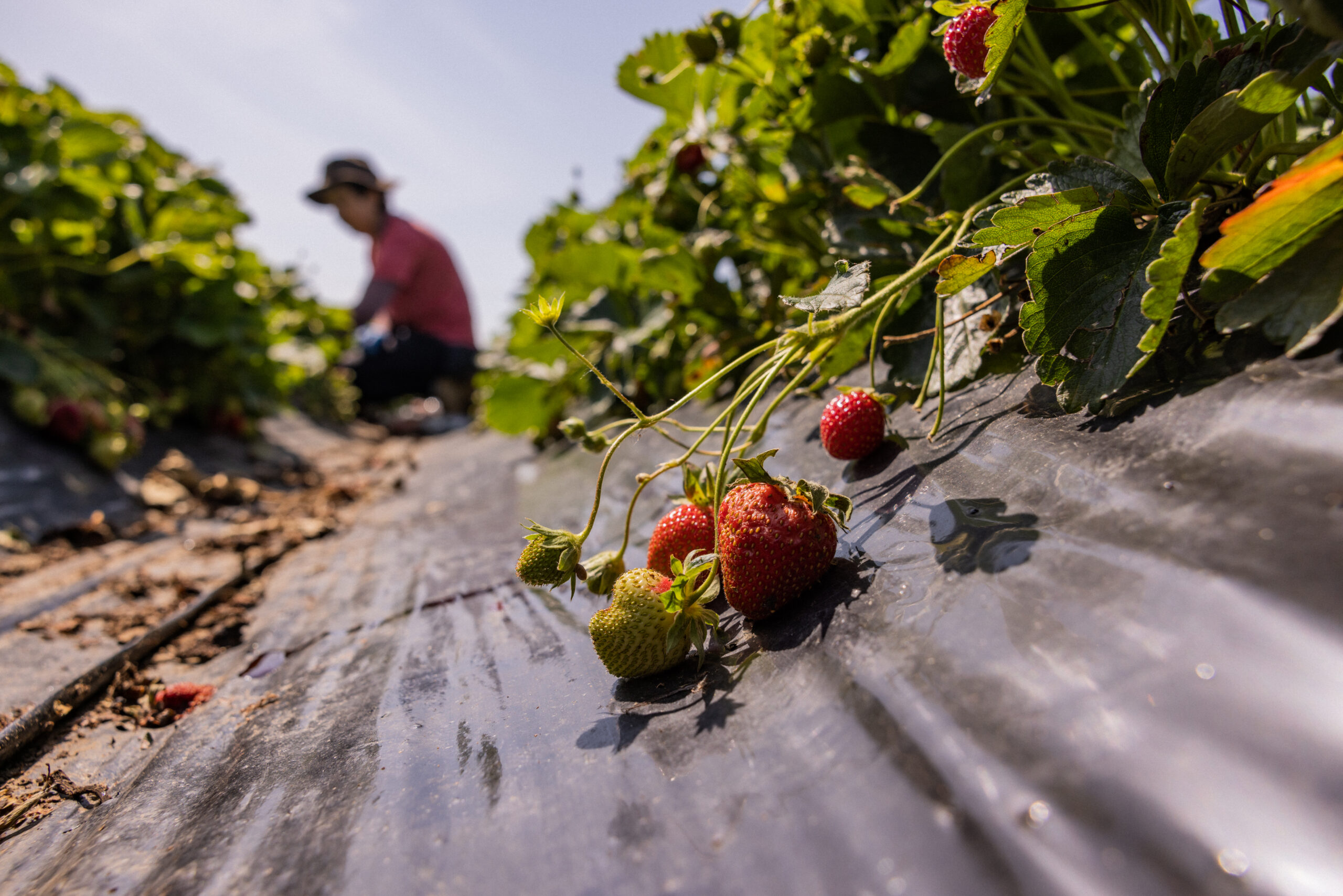For a brief moment, Donald Trump had it right. For all his administration’s vacillating threats to round up “illegals” and conduct mass deportations, the president’s own message, posted June 12 on Truth Social, rang utterly true to the core of American business — and its history.
“Our great Farmers and people in the Hotel and Leisure business have been stating that our very aggressive policy on immigration is taking good, longtime workers away from them, with those jobs being almost impossible to replace,” Trump wrote. “This is not good. We must protect our Farmers. … Changes are coming!”
Changes weren’t coming, it turned out. But they will be, and in a massive way, if the Trump administration goes on to decimate the agriculture, hotel and restaurant industries by stripping away the core of their workforce. And the entire nation will feel it.
The numbers simply aren’t in doubt. There were more than 8 million undocumented workers in the U.S. as of 2022. That’s 5% of the entire workforce. California alone is home to more than 1.5 million unauthorized workers, according to Jamshid Damooei, an economist and director of the Center for Economics of Social Issues at California Lutheran University.
Considering Trump’s obsession with California, which has repeatedly spurned him as a candidate and collectively rejected many of his policies in office, the Golden State is a fair place to ponder the wreckage Trump could wreak by going after undocumented workers who not only help prop up the state’s economy but feed the country.
More than a third of all vegetables in the U.S. are grown in California, along with more than three-quarters of the nation’s fruits and nuts. The state is the engine of food production in the country. And nearly 75% of California’s agricultural workforce is undocumented, according to research by the University of California, Merced’s Community and Labor Center. Other sources place that figure at closer to 50%, but it’s a massive percentage either way. Chasing farmworkers through fields in Ventura County and elsewhere may pander to Trump’s base, but roundups won’t put produce on the table.
* * *
The president seems to know this. Trump suggested the pullback on raids of farms, hotels and restaurants after reportedly being warned of the economic fallout by several people, including Agriculture Secretary Brooke Rollins — and later doubled down on his June 12 Truth Social post. But after a couple of days, the president relented under tremendous pressure from people in his own administration, including chief of staff Stephen Miller, who has excoriated ICE officials for not making enough arrests. The workplace raids resumed. And the risk of economic devastation ratcheted up.
Cal Lutheran’s Damooei, who has closely studied California’s migrant worker picture for decades, understands how intricately the state’s economic picture and its undocumented workforce are linked. In short, they’re inseparable. And as goes California, the fourth-largest economy in the world, so goes the country.
Using the latest information from the California Immigrant Data Portal, a resource developed by the University of Southern California’s Dornsife Equity Research Institute, Damooei found that undocumented workers directly contributed around $159 billion to California’s economy in 2021 — 4.7% of the state’s gross domestic product. That figure rises to more than 9% of GDP when indirect contributions, like the spending of their wages, are factored in.
Damooei puts the migrant workforce at 1.54 million. Their collective efforts, he says, support the state’s economy and create employment for about 900,000 other workers.
They contribute taxes, too — about $52 billion worth in 2021, either by filing Individual Taxpayer Identification Numbers or using Social Security numbers that aren’t verified. That includes nearly $20 billion in payments by the workers and their employers for Social Security, a system they’re barred from using because they are unauthorized. Undocumented workers essentially subsidize Social Security for other people.
“And these figures do not include indirect taxes, like sales taxes,” Damooei says. “The idea that the state supports these workers, and thus they’re a burden, is an empty claim and has never been proved by any credible assessment.”
* * *
The Cal Lutheran report found that in Los Angeles County, 28.7% of the construction workforce is undocumented, along with 17.5% in manufacturing, 16% in wholesale trade and more than 15% in retail trade. It isn’t just agriculture whose underpinnings would be shaken by a mass deportation effort.
“How could L.A. County function with a significant share of its vital workforce being deported?” Damooei said.
It’s one reason why Donald Trump, behind the scenes, will continue to be warned — by the agricultural lobby and so many other industries — that there is a horrible human cost being extracted from America right now, but also a straight economic price to be paid. If the president isn’t swayed by the first appeal, perhaps he’ll be moved by the other.
Copyright 2025 Capital & Main


 Column - State of InequalityJanuary 29, 2026
Column - State of InequalityJanuary 29, 2026
 Latest NewsFebruary 3, 2026
Latest NewsFebruary 3, 2026
 Dirty MoneyJanuary 30, 2026
Dirty MoneyJanuary 30, 2026
 Featured VideoFebruary 4, 2026
Featured VideoFebruary 4, 2026
 The SlickFebruary 2, 2026
The SlickFebruary 2, 2026
 Column - State of InequalityFebruary 5, 2026
Column - State of InequalityFebruary 5, 2026
 Column - California UncoveredFebruary 6, 2026
Column - California UncoveredFebruary 6, 2026
 The SlickFebruary 10, 2026
The SlickFebruary 10, 2026

